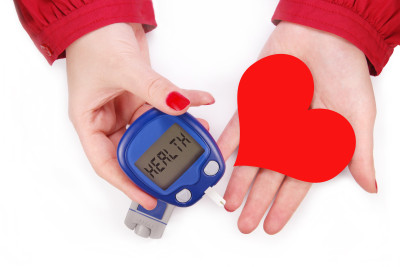Whats So Good About Fatty Acids?
By Amy Campbell, MS, RD, LDN, CDE
We often think of fat in terms of it being “good” or “bad.” Good fats are the healthy vegetable oils such as olive and canola, while bad fats are the ones that stay solid when out of the fridge, such as butter, shortening and the fat found in red meat. But there’s more to fat than meets the eye. If you’re ready to learn a little more about fat and how it can help keep your heart and blood vessels healthy, read on.
WHAT ARE FATTY ACIDS?
Dietitians refer to glucose (sugars) as the “building blocks” of carbohydrates. They also speak about building blocks of protein, which are amino acids. Did you know that fat has building blocks, too? Those are called fatty acids. The body can make some fatty acids from the food you eat. But there are some fatty acids the body can’t make. These are called essential fatty acids, or EFAs for short. EFAs are known as “good fats.”
WHICH FATTY ACIDS ARE “EFAs”?
There are two types of EFAs: omega-3 fatty acids and omega-6 fatty acids. Both are helpful but differ in how they are linked to each other. What’s important to know is that the body needs both omega-3s and omega-6s to stay alive and healthy. Why are these two types of fatty acids so important? Our bodies make some types of fatty acids, but we don’t have what is needed to make the omega-3s and omega6s. That means we must get these fatty acids from food or supplements.
WHAT’S BETTER: OMEGA-3 OR OMEGA-6?
We need both omega-3 and omega-6 fats in our diets. But most of us get too much of the omega-6 fats and not enough of the omega-3 fats because of the types of foods we eat. For example, we may eat animals that are fed grains rich in omega-6 fats, as well as vegetables and eggs that contain omega-6 fats, but we may not eat enough omega-3–rich foods, such as fish.
DOES IT MATTER IF I EAT MORE OMEGA-6 THAN OMEGA-3?
Eating too much omega-6 fats can raise the risk for certain problems, such as heart disease, type 2 diabetes, asthma, high blood pressure and rheumatoid arthritis. These are sometimes called “inflammatory” diseases. They have many causes, but experts believe eating too many omega-6 fats and too few omega-3 fats is a factor. Omega-3 fatty acids have an anti-inflammatory effect, which means they may help prevent some of these problems. Omega-3 fats also can help lower triglyceride (blood fat) levels. High triglycerides may increase the risk for heart disease.
GETTING MORE OMEGA-3 FATS
To make sure you get omega-3 fats in your eating plan, try to eat at least two fish meals every week. Be sure to grill, broil or bake your fish instead of frying it. Also, try to avoid breaded, fried fish. Another way to get fish oils is to take a fish oil supplement. But talk with your health care provider before you do so, and avoid taking cod liver oil as it may contain too much vitamin A and vitamin D. If you’re a vegetarian, include sources of plant-based omega-3 fat in your diet every day, such as walnuts, soybeans, tofu, olive oil and canola oil. Look for foods that are enriched with omega-3 fatty acids, such as omega-3 fatty acid-enhanced eggs, fortified margarines, some yogurts, some salad dressings and some cereals, too.













